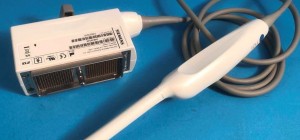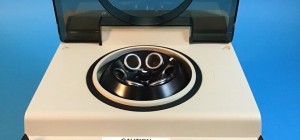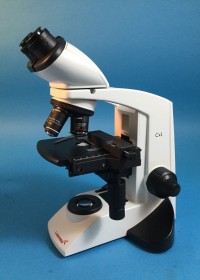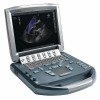
Tiny But Very Fast, Very Accurate, Low Cost, Low Footprint
NASA technology at its core
Invented at Oak Ridge Laboratories for use in the space program, the Piccolo was designed to provide accurate diagnostic information from a small whole blood sample quickly and reliably. The Piccolo Xpress’ robust architecture is designed to work in the toughest environments.
With the Abaxis Piccolo Xpress, laboratories can perform routine chemistry using 0.1cc of whole blood, serum or plasma. The system uses patented reagent disc technology that allows a lab to perform up to 15 different chemistry tests simultaneously using standard laboratory reference methods.
This system make it easy for care providers to simply pipette the sample into the disc, insert the disc into the analyzer and results are printed or transferred to an computers in about 12 minutes. No operator intervention is required. A process that usually takes several hours, with older technology and equipment.
The Piccolo Xpress employs on-board continuous intelligent Quality Control (iQC) to monitor the analyzer, reagent reactions and sample to ensure the highest quality and accuracy in results.
The Piccolo Xpress’ small foot print and low cost makes it an ideal solution for small hospital laboratories as a front line analyzer or as a cost effective back-up to a main system in all hospitals.
As a Point Of Care Analyser, it finds use in Primary Care, Emergency, Long Term Care, Oncology, Hospitals, Pediatrics, ICU, OR, Military and Research Facilities, etc
The Piccolo® Comprehensive Metabolic Panel, used with the Piccolo Xpress® chemistry analyzer, is intended to be used for the in vitro quantitative determination of alanine aminotransferase (ALT), albumin, alkaline phosphatase (ALP), aspartate aminotransferase (AST), calcium, chloride, creatinine, glucose, potassium, sodium, total bilirubin, total carbon dioxide, total protein, and blood urea nitrogen (BUN) in heparinized whole blood, heparinized plasma, or serum in a clinical laboratory setting or point-of-care location.
Tiny But Very Fast, Very Accurate, Low Cost, Low Footprint .This system make it easy for care providers to simply pipette the sample into the disc, insert the disc into the analyzer and results are printed or transferred to an computers in about 12 minutes. No operator intervention is required. A process that usually takes several hours, with older technology and equipment.
The Piccolo Xpress employs on-board continuous intelligent Quality Control (iQC) to monitor the analyzer, reagent reactions and sample to ensure the highest quality and accuracy in results..
Summary and Explanation of Tests / Diagnostic
Value
The Piccolo Comprehensive Metabolic Panel and the Piccolo Xpress
chemistry analyzer comprise an in vitro diagnostic system that aids the
physician in diagnosing the following disorders:
Alanine
aminotransferase
(ALT):
Liver diseases; including viral hepatitis and cirrhosis.
Albumin:
Liver and kidney
disease.
Alkaline phosphatase (ALP): Liver, bone, parathyroid and
intestinal
diseases.
Aspartate aminotransferase (AST): Liver disease including hepatitis and viral jaundice; shock.
Calcium: Parathyroid, bone and chronic renal diseases; tetany.
Chloride:
Dehydration, prolonged diarrhea and vomiting, renal tubular disease,
hyperparathyroidism, burns, salt-losing renal diseases, overhydration
and thiazide
therapy.
Creatinine: Renal disease and monitoring of renal dialysis.
Glucose: Carbohydrate metabolism disorders, including adult and juvenile diabetes mellitus and hypoglycemia.
Potassium:
Renal glomerular or tubular disease, adrenocortical insufficiency,
diabetic ketacidosis, excessive intravenous potassium therapy, sepsis,
panhypopituitarism, in vitro hemolysis, hyperaldosteronism,
malnutrition, hyperinsulinism, metabolic alkalosis and gastrointestinal
loss.
Sodium: Dehydration, diabetes insipidus, loss of hypotonic
gastrointestinal fluids, salt poisoning, selective depression of sense
of thirst, skin losses, burns, sweating, hyperaldosteronism, CNS
disorders, dilutional, depletional and Page 2 of 25 delusional
hyponatremia and syndrome of inappropriate ADH secretion.
Total bilirubin: Liver disorders, including hepatitis and gall bladder obstruction; jaundice.
Total carbon dioxide: Primary metabolic alkalosis and acidosis and primary respiratory alkalosis and acidosis.
Total protein: Liver, kidney, bone marrow diseases; metabolic and nutritional disorders.
Blood Urea Nitrogen (BUN): Renal and metabolic diseases.
References:
Abaxis.com
intermedico.com








Leave a Comment